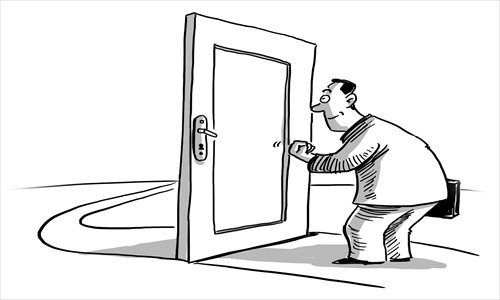Opening up Myanmar puts heat on India

China and India declared during Chinese Premier Li Keqiang's recent visit to India that they have jointly proposed developing an economic corridor joining Bangladesh, China, India and Myanmar, thus promoting a closer relationship between the two largest Asian markets.
The Sino-Indian relationship seems to be obstructed. Many have attributed this to the unresolved border issue. Indeed, a clear demarcation of the border is important, but only time will tell when the issue can be solved. Before that, strengthening bilateral communication is equally important.
The roads and rails linking China and Southeast Asia with India will play an unexpected role.
India will be drawn into the wave of economic development in China and Southeast Asian countries like Thailand. Impelled by its powerful competitors, India will finally open its own markets more. Competition will also enhance India's own confidence and accelerate its "Look East" agenda.
Not long ago, I drove to Sukhothai, a famous city in northern Thailand. To its east, the hub links Laos and Vietnam, and to its west are Myanmar, Bangladesh and India. It also crosses the road linking China's Kunming, Yunnan Province, with the Thai capital of Bangkok.
Ninety kilometers west of this crossing point is the town of Mae Sot of Thailand, which shares a border with Myanmar. On the trip, I saw many trucks loaded with heavy goods crawling along the road and construction work busily being carried out.
This is a crucial gateway from Thailand and China to Myanmar. In Southeast Asia's border trade, the trade volume of the Mae Sot port is ranked second, next only to the Muse port on the border shared by China and Myanmar.
But from Mae Sot to Myanmar's Moulmein port, the rugged and rough path is more than 100 kilometers long and some sections have space enough for only one vehicle. The road from Moulmein to Yangon is dilapidated as well.
Many roads and railways are like this within Myanmar. Blocked by the sluggish transportation of Myanmar, India hasn't directly experienced the economic vitality of China and Southeast Asian countries or enjoyed the economic benefits in the region.
India's north is next to Nepal and China's Tibetan Autonomous Region, which are dominated by undulating mountains.
I used to travel along the road linking China and Nepal, but discovered the road condition was so bad that even medium-sized trucks needed to go gingerly.
The complex ethnic issues also make it difficult to link China and India from India's northernmost regions.
It is therefore much easier to connect the two via Myanmar from India's east, which can also promote the integration of economies of China, ASEAN and South Asia.
Myanmar is situated between China and India, the world's largest two developing countries. Its geopolitical advantages are notable.
To its northeast lies China's Yunnan Province where the road and railways are quite developed. To its east is Thailand, whose transportation infrastructure is well-developed. Recently, the Thai government decided to invest $76 billion to build high-speed rail, which is expected to connect Laos, Malaysia and China.
If Myanmar is opened up, India will be directly linked with ASEAN and China. Goods from China, Thailand and Vietnam will be transported straight to India. Of course India will feel some pressure. But India at the moment perhaps really needs to be pushed.
The Indian economy has encountered some storms in recent years. There are many obstacles for the country to open up its markets. Its "Look East" agenda is also restrained. An outside economic push may promote India's internal reforms.
Nathu La, one of the open trading border posts between China and India, hasn't been fully developed due to a lack of outside pressure.
If Myanmar gets involved, India will feel the heat. India doesn't lack the potential for development, but it needs outside force to activate such potential.
The author is a senior editor with People's Daily. He's now stationed in Bangkok. dinggang@globaltimes.com.cn